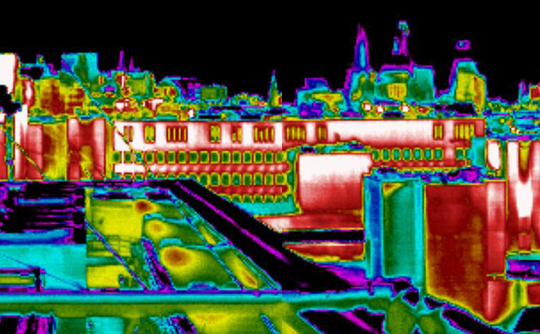UK company brings emission-cutting boiler optimisation devices to 34 countries after 25 per cent rise in orders.
Boilers may not be at the sexy end of clean tech, but the huge savings that can be made from more efficient systems are certainly quickening investors' pulses.
AIM-listed Sabien Technology saw a 25 per cent increase in orders for its M2G efficiency device over the last six months of 2014 and is now poised to build on this success by doubling its overseas supply network.
The £1,850 box optimises commercial boilers, resulting in energy cost savings of as much as 25 per cent with paybacks typically less than two years, according to Sabien founder, chief executive and main shareholder Alan O'Brien.
Most commercial boilers continue to fire even after the building has reached the required temperature, because they try to recover the heat lost as they cool, thinking their own falling temperature calls for more heat – a process known as dry-cycling. O'Brien says the M2G takes readings every second to recognise when boilers are dry-cycling and turns them off accordingly, generating bill savings of between 10 and 25 per cent.
According to Sabien, this marks an improvement on standard building management systems (BMSs) which typically macro-manage all the boilers in a building rather than each individual boiler. M2G, O'Brien says, will optimise each boiler on the estate.

The company has conducted more than 200 pilots in the UK since 2004, some clocking up savings of close to 40 per cent, and rolled out systems to large, multi-site organisations such as BT, RBS, Lloyds, Lincolnshire County Council, and the Ministry of Defence.
And O'Brien is bullish over his ambitions for the company domestically, where energy costs are a true boardroom concern. "There's plenty to go after even within those estates," he says. "[And] there's tonnes we can do here [in the UK]. There are about six million commercial boilers in the UK, we've only fitted 9,000 of them, so there's a lot to go after."
However, the company views overseas markets as vital to developing the business further. Rather than hiring staff in new territories, Sabien has pioneered an international network of third-party "tech centres" where it trains salespeople to market the M2G and provides technical support.
"I don't see how else you can make this work, how you could possibly go around the world setting up points of presence carrying all the cost and think you'll make any money out of it," he says. "What we need to do now is build a really robust pipeline."
The global drive to cut emissions and energy costs has helped Sabien set up about 34 tech centres in countries such as France, Germany, South Africa, the United Arab Emirates, Australia, India, and China, where Sabien has established a presence in Beijing and Shanghai. In the US, Sabien's partnership with burner management company Fireye sees its products sold in 50 states under a white-label agreement.
A presence in Latvia and Lithuania should be established before the end of the year, while O'Brien says Sabien is also targeting South Korea and Japan.
Smart controls and doing more with data are likely to inform future upgrades – O'Brien says there are several projects in the pipeline to enhance customer engagement with the technology.
It's clear there is no shortage of ideas at Sabien, which is proving to be a British clean tech success story other brands could look to for inspiration.
Anh Tuan
